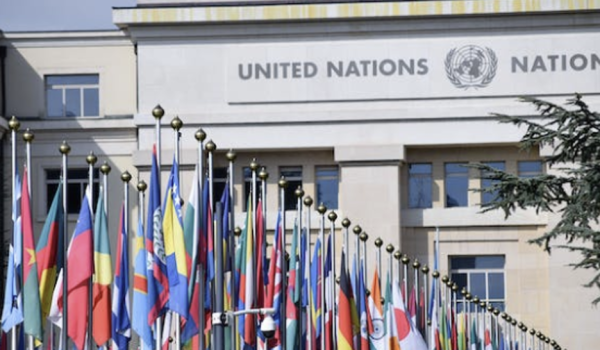Global migration policies present a complex set of challenges and opportunities for countries and the international community. These policies refer to the rules and regulations governing the movement of people across borders. The challenges and opportunities associated with global migration policies can vary significantly depending on a country's perspective and the specific policy measures in place. To effectively address the challenges and harness the opportunities of global migration, it's crucial for countries to develop comprehensive and balanced migration policies that take into account economic, humanitarian, and security concerns. Additionally, international cooperation and dialogue are essential to address migration on a global scale and promote a more orderly and humane system.

Challenges:
Political and Social Controversy: Migration policies often spark political and social controversies, with debates on issues such as national identity, security, and cultural assimilation. Divisive rhetoric and polarization can hinder constructive policy development.
Economic Strain: High levels of immigration can strain public services, including healthcare, education, and social welfare systems. Managing the economic impact of migration, including wage disparities and labor market disruptions, is a challenge.
Border Security: Maintaining border security while allowing for the movement of people is a delicate balance. Ensuring the safety of both migrants and host country citizens is a significant challenge, especially in regions with high migration flows.
Human Rights Violations: Some migration policies can lead to human rights violations, including the exploitation of migrants, detention in poor conditions, and family separations. Upholding human rights in migration policies is a critical concern.
Xenophobia and Discrimination: Negative attitudes and discrimination against migrants can intensify with restrictive policies. This can result in social tensions and hinder integration efforts.
Humanitarian Challenges: Many people migrate due to conflict, persecution, or natural disasters. Global migration policies must address the humanitarian needs of these vulnerable populations and ensure access to safety and protection.

Opportunities:
Economic Benefits: Migration can bring economic benefits to host countries by filling labor gaps, stimulating entrepreneurship, and contributing to economic growth through consumer spending and taxation.
Demographic Stability: Aging populations in many developed countries can be offset by attracting a younger, immigrant workforce, which can help maintain demographic stability and support social welfare systems.
Innovation and Diversity: Migration can foster cultural diversity and contribute to innovation and creativity by bringing together people with different perspectives and experiences.
Global Skill Mobility: Encouraging the movement of skilled workers can help address skills shortages and promote knowledge exchange across borders.
Humanitarian Response: Migration policies can provide opportunities for countries to demonstrate humanitarian leadership by providing refuge to those fleeing persecution, conflict, or environmental disasters.
Regional Cooperation: Bilateral and regional agreements on migration can facilitate cooperation among countries and enhance policy effectiveness in managing migration flows.
Integration Efforts: Implementing inclusive integration policies can help migrants become active and contributing members of host societies, improving social cohesion and reducing potential tensions.
Global Solidarity: Migration policies provide an opportunity for countries to show global solidarity by addressing refugee crises and humanitarian emergencies.
In summary, global migration policies are a complex and multifaceted issue that presents both challenges and opportunities for countries and the international community. Striking the right balance between border security, economic benefits, humanitarian concerns, and social integration is crucial for effective and ethical migration management. Collaboration among nations and a focus on evidence-based policies are essential for addressing the global challenges and opportunities presented by migration.
Support us!
All your donations will be used to pay the magazine’s journalists and to support the ongoing costs of maintaining the site.
Share this post
Interested in co-operating with us?
We are open to co-operation from writers and businesses alike. You can reach us on our email at [email protected]/[email protected] and we will get back to you as quick as we can.










